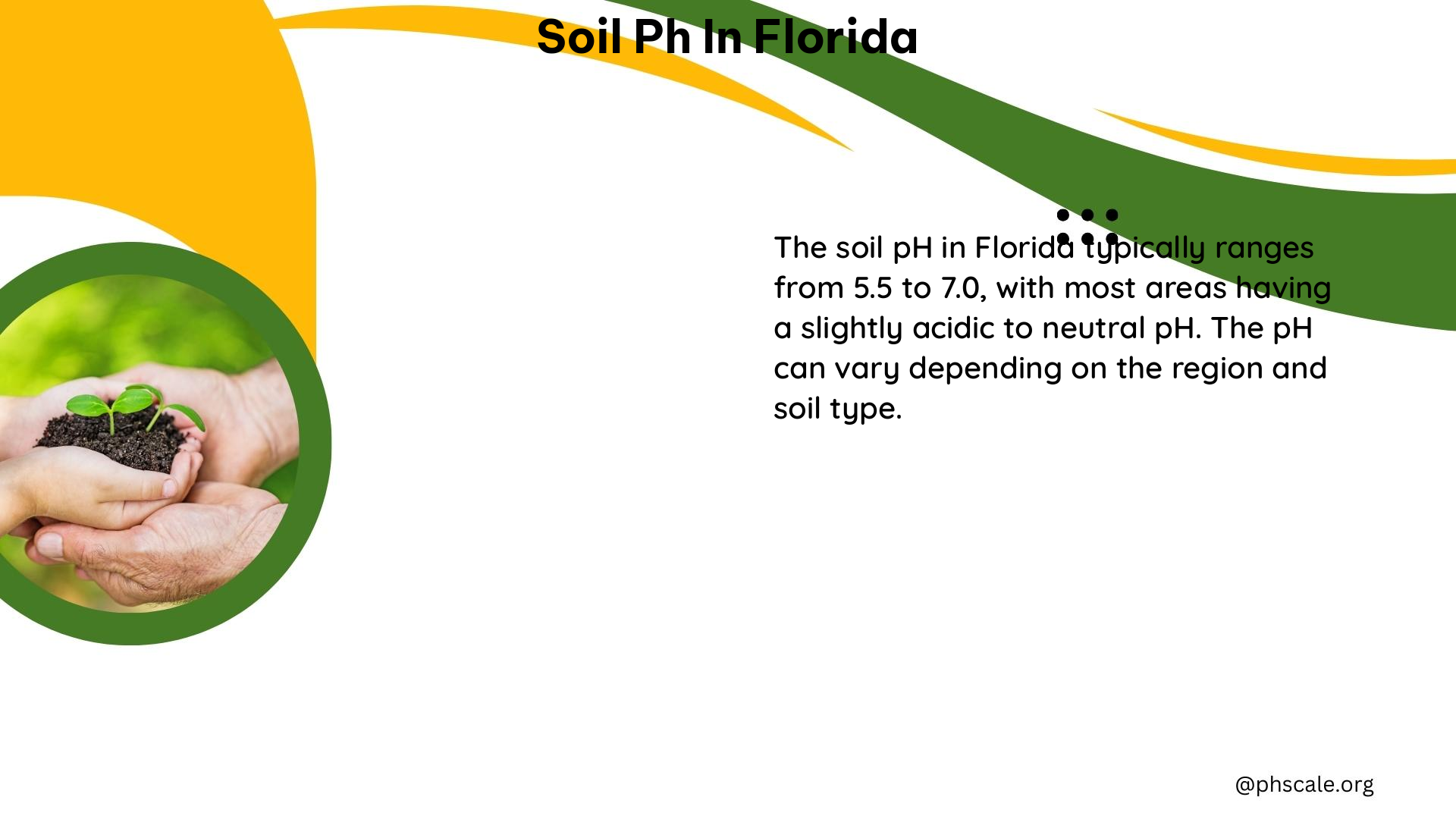Soil pH in Florida is a crucial factor that gardeners and farmers must consider to ensure the health and productivity of their plants. With a median soil pH of 6.1, which is slightly acidic, understanding the optimal pH ranges for different crops and taking the necessary steps to adjust the soil’s acidity can make all the difference in the success of your horticultural endeavors.
Optimal Soil pH Ranges for Florida’s Crops
The soil pH in Florida can vary depending on the type of plants you’re growing. Here’s a breakdown of the ideal pH ranges for some common crops:
| Crop Type | Ideal pH Range |
|---|---|
| Fruit Crops | 5.4 to 6.2 (organic soils) 5.8 to 7.0 (mineral soils) |
| Vegetable and Flower Gardens | 5.8 to 6.3 |
| Blueberries | 4.5 to 5.5 |
| Muscadine Grapes | 6.0 |
| Lawn Grasses | Wide range |
By understanding the specific pH requirements of your plants, you can ensure that they have access to the necessary nutrients and thrive in their growing environment.
Determining Soil pH in Florida

Accurately determining the pH of your soil is the first step in understanding and managing it. There are a few reliable methods to test your soil’s pH:
-
Soil Testing: Send a soil sample to a reputable lab, such as the University of Florida Extension Soil Testing Laboratory or your local county Extension office. They can provide a detailed analysis of your soil’s pH and nutrient levels.
-
Proper Soil Sampling: Follow the guidelines outlined in EDIS publication SL190, “Soil Sampling Strategies for Precision Agriculture,” to ensure you collect a representative sample of your soil.
Adjusting Soil pH in Florida
If your soil’s pH is not within the optimal range for your desired crops, you can take steps to adjust it. Here’s how:
Raising Soil pH
To increase the pH and make your soil less acidic, you can add liming materials like calcium carbonate or dolomite. Dolomite has the added benefit of providing magnesium, which is often deficient in Florida soils.
Lowering Soil pH
Reducing the pH and making your soil more acidic can be more challenging. You can use elemental sulfur or dilute acids, but it’s important to test the soil periodically to avoid over-correcting and causing root damage.
Common Soil Types in Florida
Florida’s diverse landscape is home to several distinct soil types, each with its own unique characteristics:
-
Myakka Fine Sand: This soil type covers most of the state and is characterized by poor drainage and rapid permeability.
-
Pine Flatwoods: These sandy, poorly draining soils are dominated by pine trees and shrubs.
-
Miami Limestone: Found in Southeast Florida, this soil is composed of ooids, quartz sand, and mollusk fossils, and it drains water quickly.
Understanding the specific soil type in your area can help you make informed decisions about managing the pH and other soil properties.
Challenges in Florida Soils
Florida’s soils present several challenges that gardeners and farmers must address:
-
Poor Drainage: Many Florida soils have poor drainage, which can affect plant growth and construction.
-
Acidic Nature: The natural acidity of Florida soils can impact plant nutrient availability and concrete construction.
Home Remedies and DIY Tips
As a Florida gardener or homeowner, there are several steps you can take to manage your soil’s pH:
-
Soil Testing: Regularly test your soil to determine its pH and nutrient levels, and make adjustments as needed.
-
Choose Suitable Plants: Select plants that are tolerant of your soil’s natural pH to minimize the need for adjustments.
-
Apply Lime or Sulfur Carefully: Use the correct amounts of lime or sulfur to adjust your soil’s pH, and avoid over-correction, which can harm your plants.
Contaminants and Chemicals
It’s important to be aware of potential contaminants and chemicals that can affect your soil’s pH:
- Calcium-Rich Building Materials: These can increase soil pH and create alkaline conditions.
- Mushroom Compost and Wood Ashes: Overuse of these materials can raise soil pH above the optimal range.
By understanding the unique challenges of soil pH in Florida and taking the necessary steps to manage it, you can create a thriving garden or productive agricultural land that meets the needs of your plants and crops.
References
- https://edis.ifas.ufl.edu/publication/HS1234
- https://journals.flvc.org/edis/article/download/117189/115304
- https://www.alphafoundations.com/resources/concrete-lifting/florida-soil/
- https://www.nwfdailynews.com/story/lifestyle/home-garden/2018/09/23/florida-gardening-when-it-comes-to-soil-ph-dont-guess-test/10213871007/
